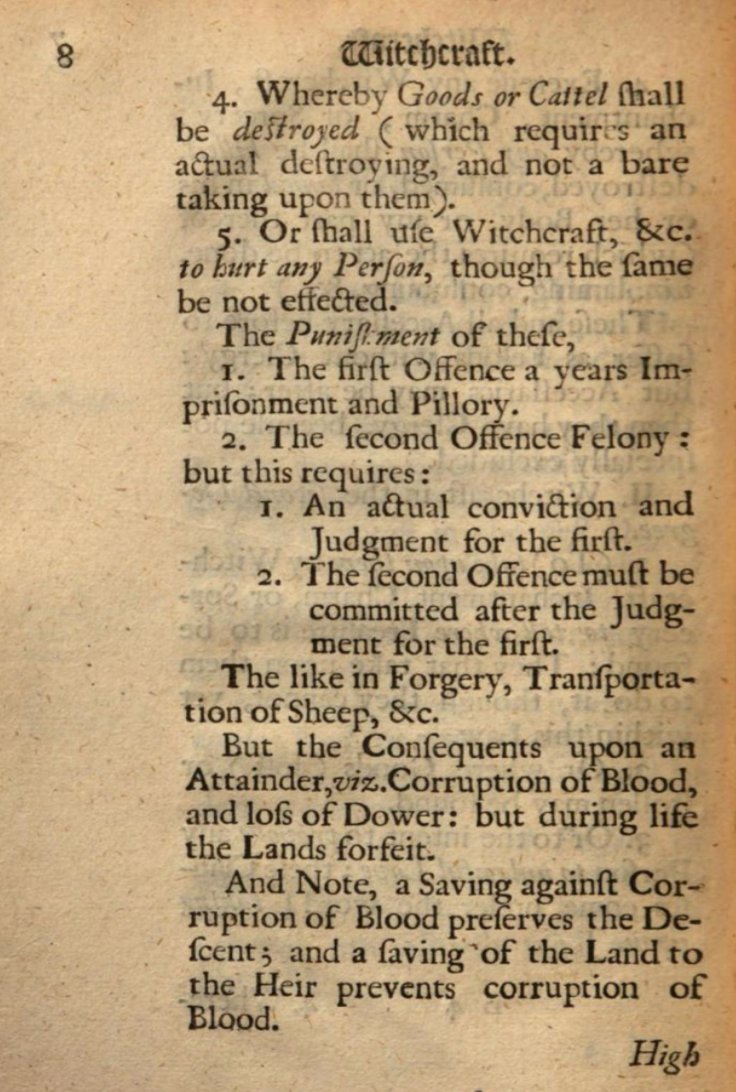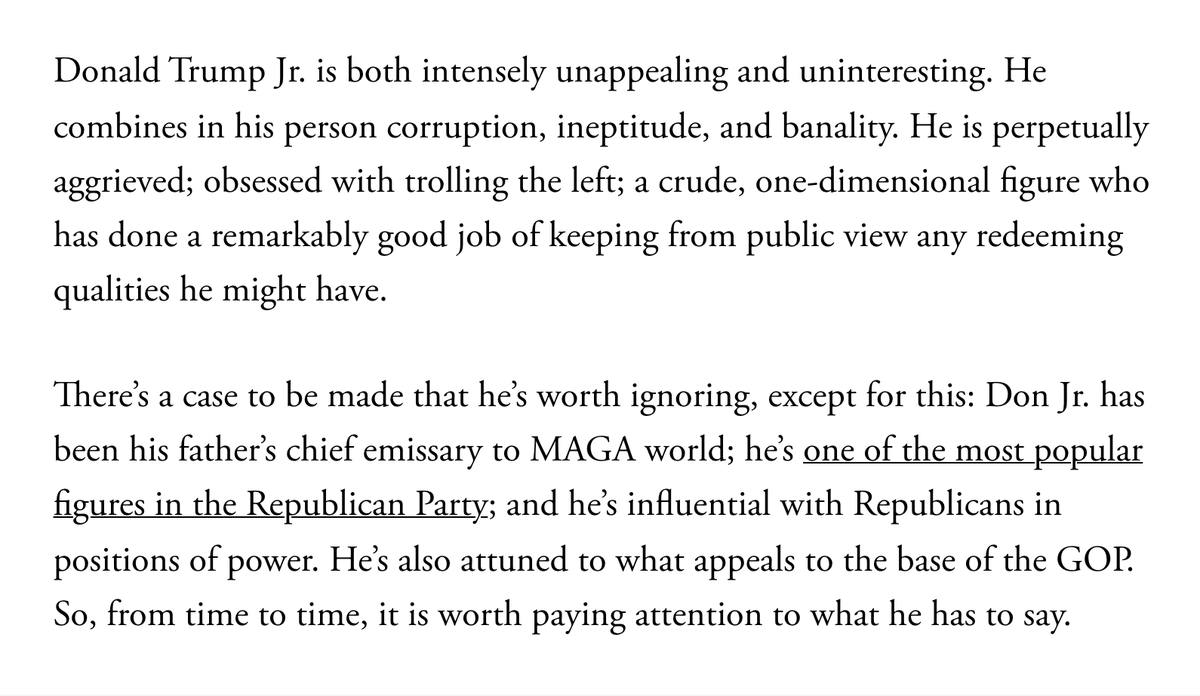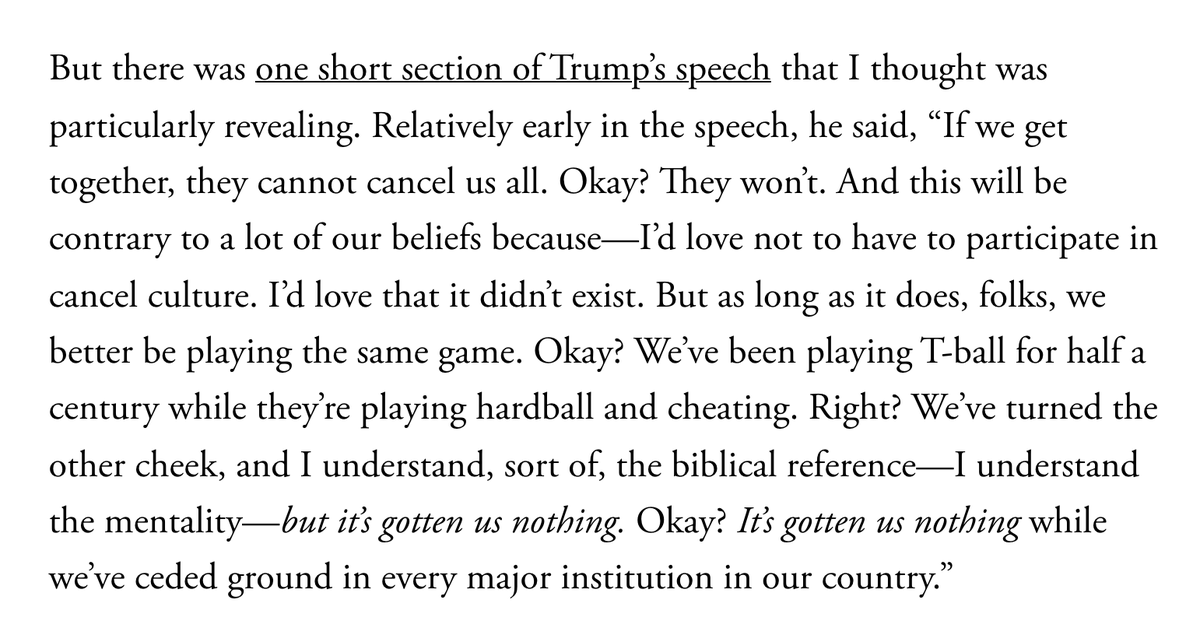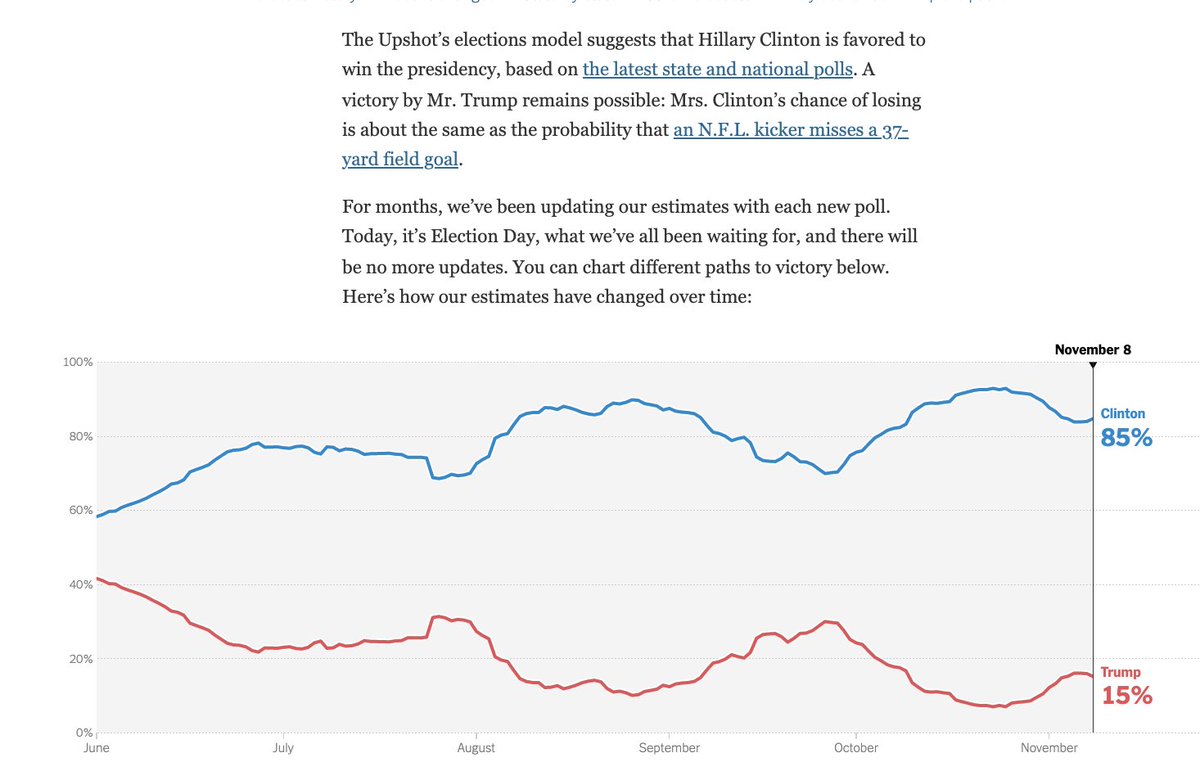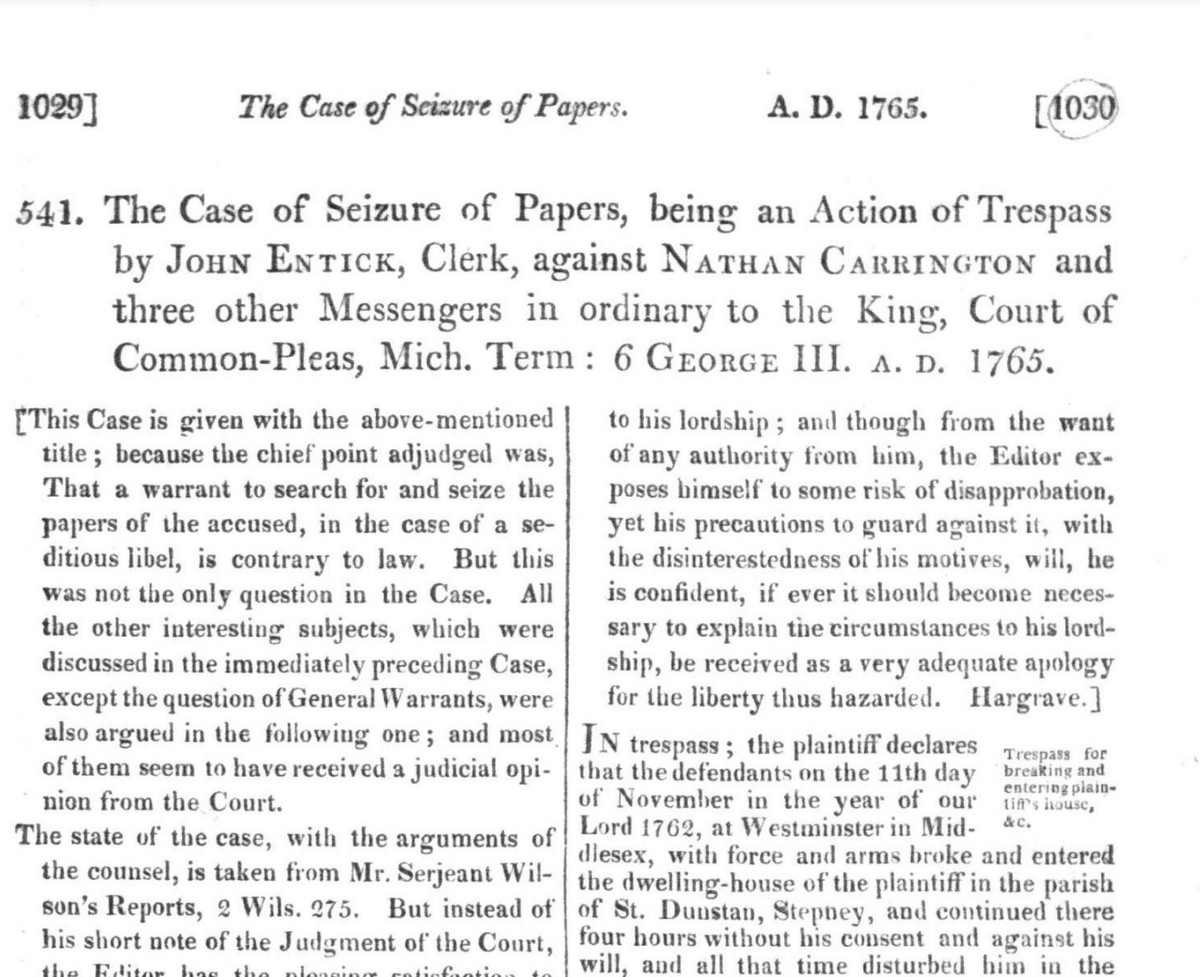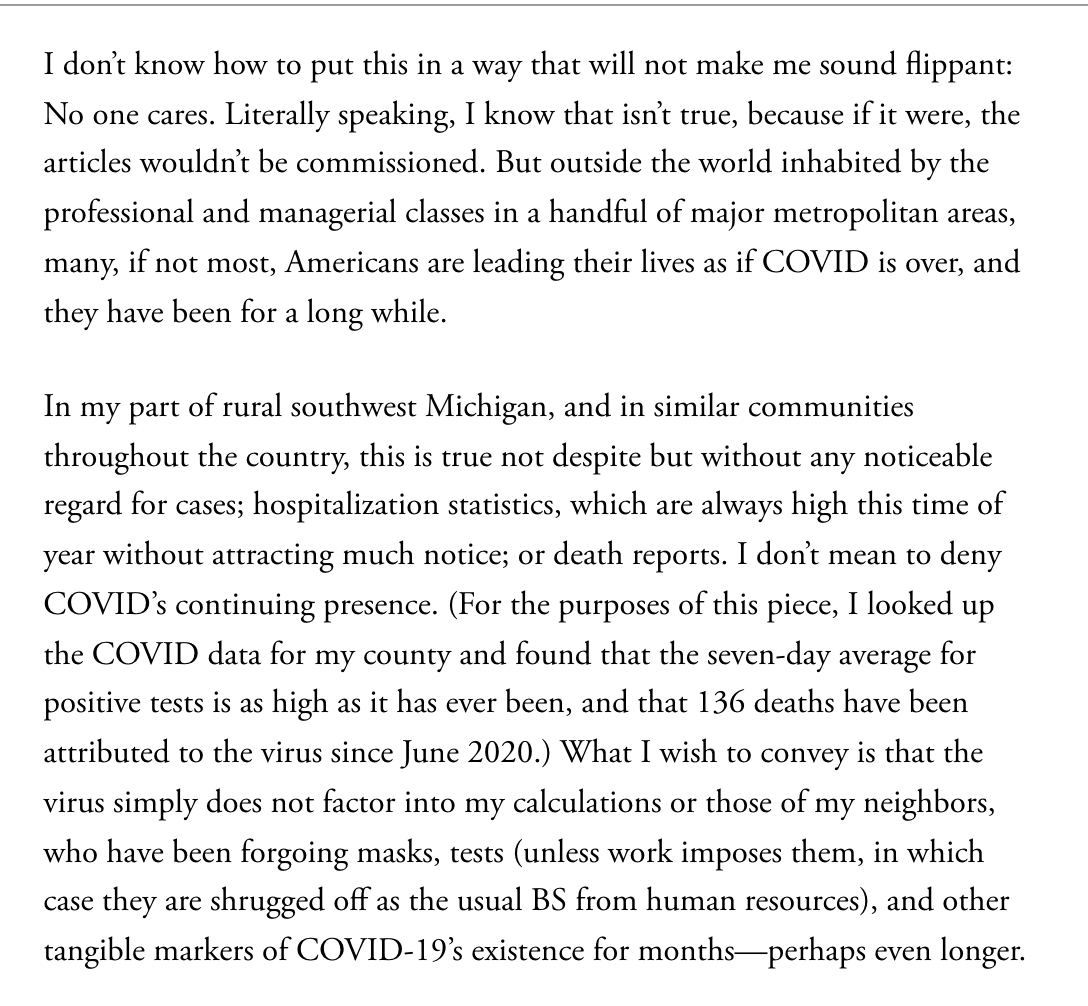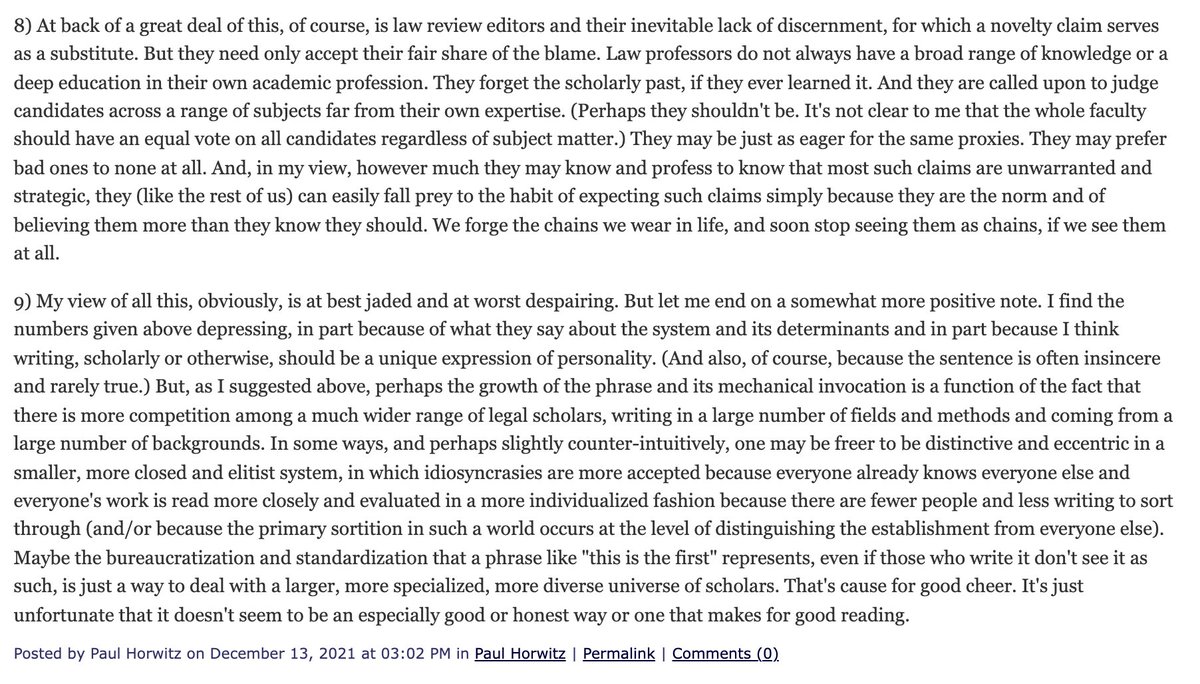
One of those doctrinal distinctions that 1L Criminal Law courses often overlook: What exactly is the difference between Witchcraft in the First Degree and Witchcraft in the Second Degree? (From Hale's Pleas of the Crown, 1682). play.google.com/books/reader?i… 
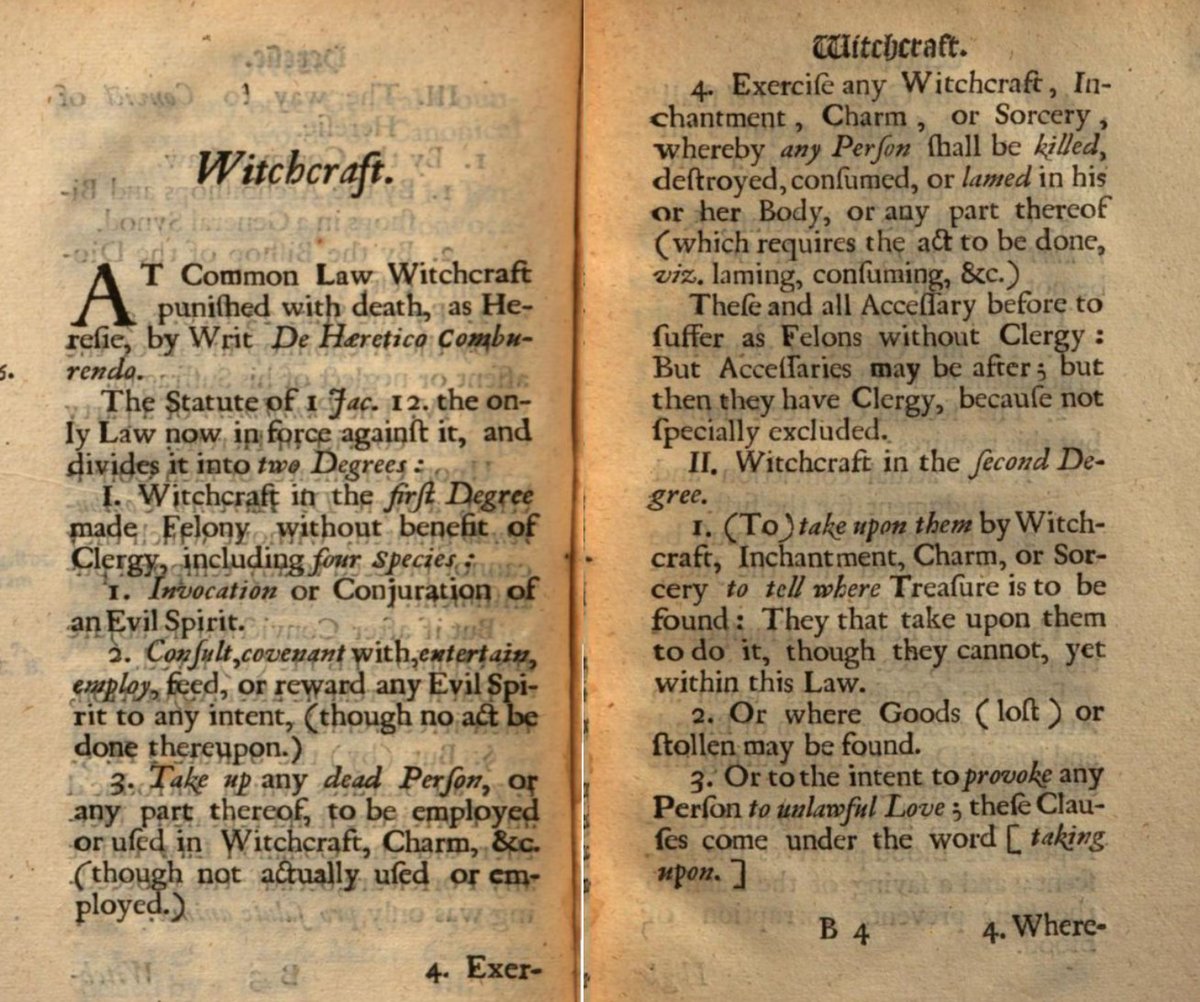
Glories of the common law, etc.
In case you were wondering, the Salem Witch Trials were a decade later. en.wikipedia.org/wiki/Salem_wit…
Today we're like, what kind of mass hysteria was needed to believe in witches? Back then, they were like, see Matthew Hale, Pleas of the Crown 6-8.
Sorry I can’t answer some of the practical questions being raised. As I am a law professor, I focus more on witchcraft theory than witchcraft doctrine.
There seems to be a lot of interest in this question, so here's the text of the statute that Hale is discussing.
statutes.org.uk/site/the-statu…
statutes.org.uk/site/the-statu…
Ok, I'm spending way too much tonight researching witchcraft law, so I'll leave this Mel Torme link and try to move on. :)
• • •
Missing some Tweet in this thread? You can try to
force a refresh

